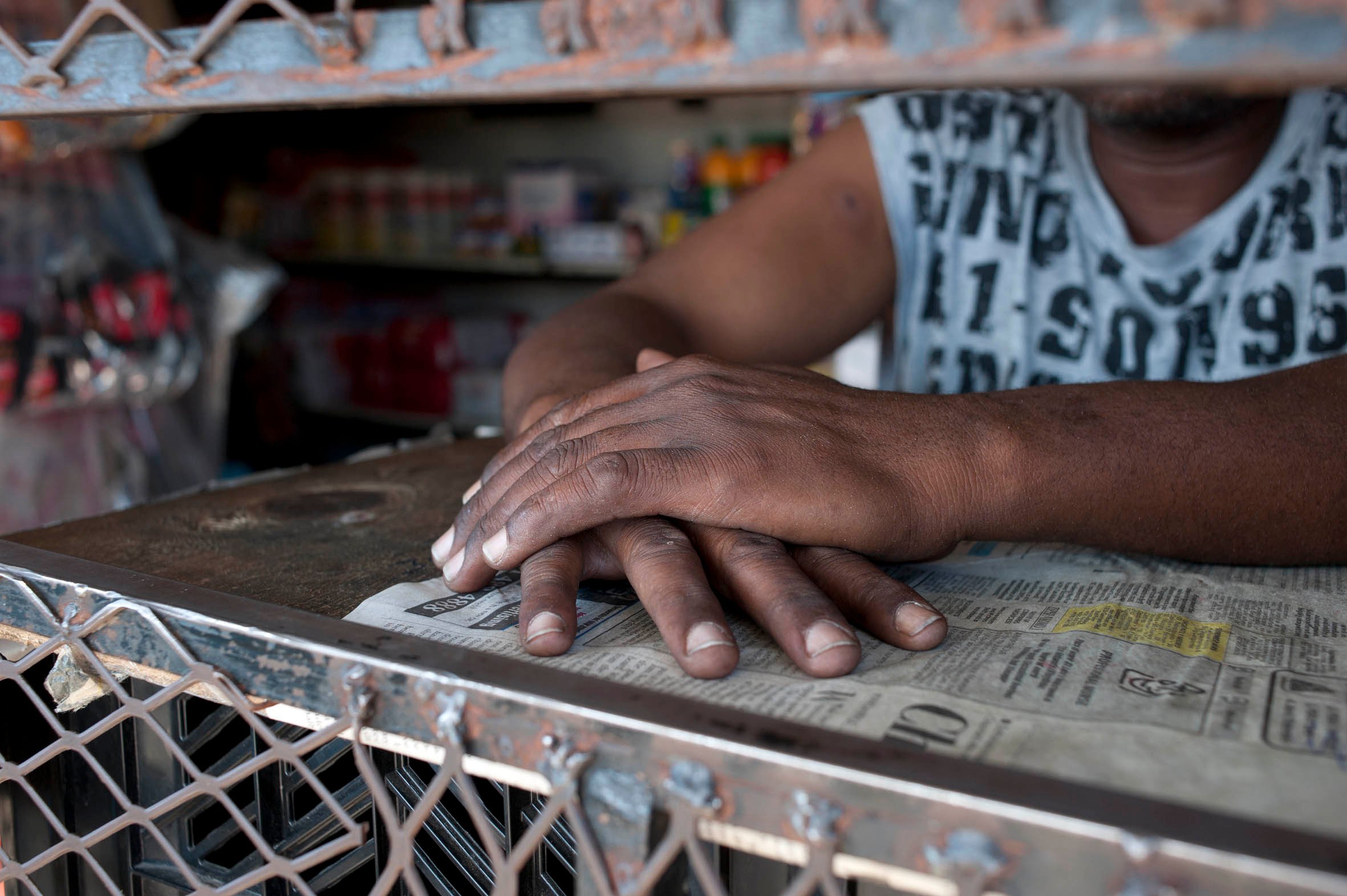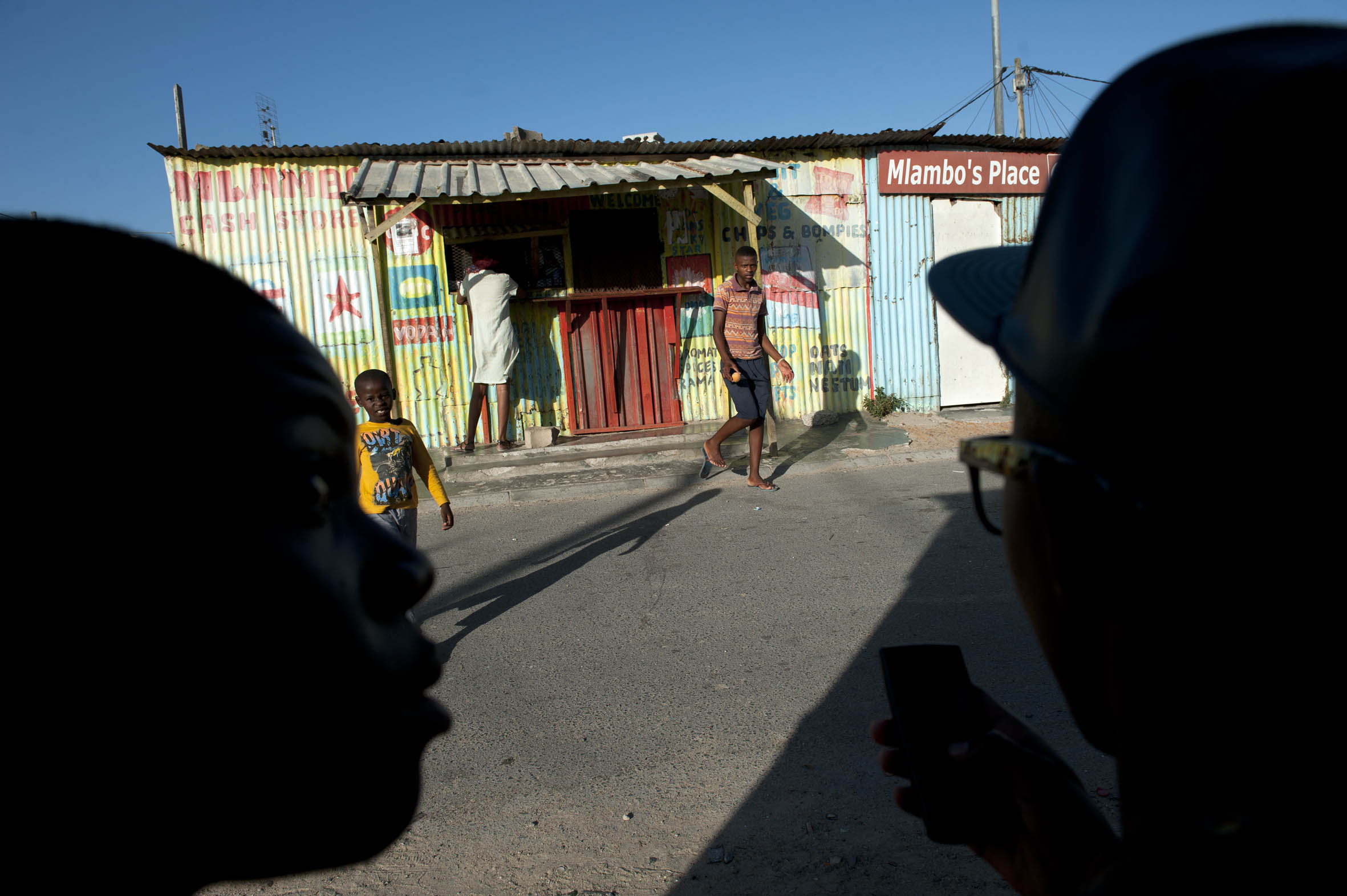Somali spaza shop owners say that they can't go to the police for help because they refuse to open a case as 'they are foreigners'
It’s a warm Saturday afternoon when I arrive at the spaza shop a little way down Bangiso Drive in Site B, Khayelitsha. I am met by the owner of the property, a South African man, who tells me that the Ethiopian tenants who I had met there some time ago have left. Something about not paying their rent.
Across the street a group of men are drinking in front of a family home. I walked over and begin to talk to them about the violence and looting of foreign-owned shops in Soweto that has been unfolding in the news.
An older man speaks first. “Yah man, that thing happening there [Soweto] I feel it, but I’m not feeling well. We stay together, we are black together no matter what, we are all Africans at the end of the day and belong together”.
A younger man interjects, “It’s the youngsters who don’t understand that. They burnt a Somalian with tires here last week; he didn’t have money to buy members of the Italian gang tik.
The people of South Africa need to learn to work together, we must take full example from the Somalians. Instead we just take out our frustrations to the Somalians and then we beat them, we take their things by force.
“Instead we should just learn from them, but it’s not happening. If only we as South Africans could learn to take responsibility just like those guys, everything would be good, but we don’t want to take responsibility.
“We just want to blame other people and then we end up taking their things by force, which is not right. Jealousy, I think that’s what triggers all this violence towards the Somalians, because these guys are making money. Seriously they are making good money those guys.”
The men gesture up the road to where a man is welding burglar bars together on the sidewalk. “That guy is South African, he won’t have problems. If someone comes and takes something from that guy we are going to chase him and stop him. But if he goes to the (Somali) shop and takes something, we all going to go there and take something also.”
I ask them why? “Because they are foreigners.”
Somalians are ‘targets’
A lady leans out of a window and briefly joins the conversation. “Ethiopians are nicer than Somalians. This shop [across the road] is very busy. From this [shop owner] you take on credit, if you short then he can give you something and you pay later. So he’s one of us. If something happens we will defend that guy.”
The younger man again says: “We as the youngsters don’t understand that – only the older people will defend that guy. The youngsters will go there and make violence.”
A Somali spaza owner up the road calls me over as I try to take a few photographs outside his shop. He is nervous and doesn’t want me taking pictures, and definitely not his picture. He’s worried there may be reprisals, and although he agrees to talk to me, he won’t give me his real name.
He has been living in South Africa for twelve years. He shows me three stab wounds he received during different robberies.

“As Somalians working here you are a target, twenty four hours. At night you don’t sleep, during the day it’s still not nice. If you want to leave the shop you can’t go alone, they will rob you. You don’t have any place to run; you come from Somalia, you can’t go anywhere, you can’t do anything.
“I’m just looking for bread. I don’t have papers. I can’t go anywhere, I’m still an asylum seeker. I can’t move from here. There are a lot of problems I have here. All of us have the same problems.”
South Africa is ‘not right’
In Bangiso Drive there are a number of spaza shops. All the Somali and Ethiopian shops operate from behind closed doors, through openings in burglar bars. Almost every one of the South African-owned shops have open access.
A bit further down the road, I speak to another shop owner, a Somali man who talks to me from behind a security gate.
“A customer asked me if I had been watching what was happening in Gauteng. I said no, but I had been watching. Things are very bad here. You can’t go down the road to visit your friend at another shop – you will be robbed and maybe beaten.

“If you go to police to report anything they will tell you they won’t open a case because you are a foreigner, and if they do, then they will be killed.”
I ask him who will kill them, and he replies: “Some police”.
“I was shot during a robbery,” he shows me where the bullet went in and out, and the form from the Khayelitsha clinic where he was treated.
“They all carry guns. If I could get a chance I would move form here. But, just like all the fingers on my hand are different, not everyone in the community is the same.”
Joseph Muhammad (not his real name) rents a shop in Town 2 in Khayelitsha. Muhammad says that he has already been robbed twice this year.
“The problem is the skollies. They all have guns. If they get arrested they are out after two months.
“It’s not like that in other countries. I want to leave this country. It’s better for me. I don’t like it here, it’s always robbing. South Africa is not right. I’ve had an interview with the UN. I’m waiting for their call.”